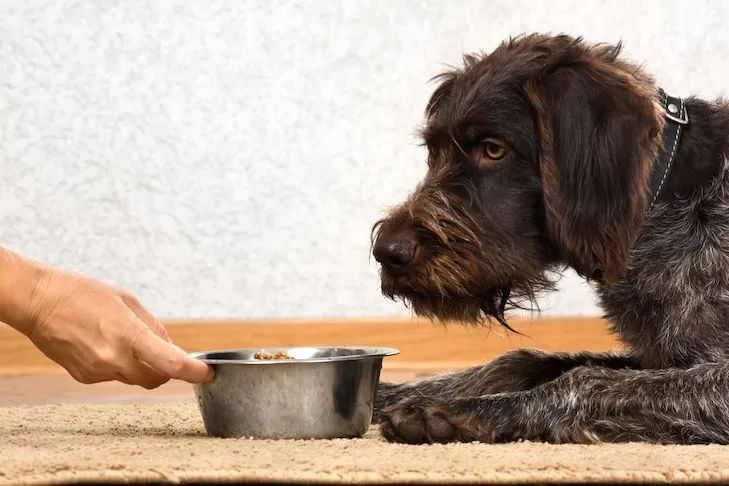Are you thinking about switching your dog to a homemade diet? It’s a popular choice among pet owners seeking fresh, customizable meals, but starting with a consultation from your veterinarian or a veterinary nutritionist is essential. Many online recipes for homemade dog food look appealing, yet they often lack review by experts to ensure nutritional balance. The American College of Veterinary Nutrition (ACVN) emphasizes that every dog’s needs vary by age, size, breed, and health status. Puppies under one year, pregnant, or lactating dogs require precise ratios of nutrients like calcium and phosphorus to avoid serious issues such as bone deformities, as noted by AKC chief veterinarian Dr. Jerry Klein.
This guide breaks down the key components of a balanced homemade dog food diet, transition tips, and reliable resources. Whether you’re crafting meals from scratch or supplementing commercial food, prioritizing expert input ensures your furry friend thrives.
The ABCs of a Balanced Homemade Dog Food Diet
Crafting homemade dog food means replicating the nutritional profile of high-quality commercial diets. Focus on essential macronutrients and micronutrients while avoiding common pitfalls like overcooking or improper ratios. Here’s a detailed look at what your dog needs.
Protein: The Building Block
Dogs are omnivores but thrive on high-quality animal proteins providing 10 essential amino acids they can’t synthesize. These support energy production via glucose conversion, muscle repair, and overall vitality. Safe sources include boneless, skinless chicken, turkey, lean beef, lamb, limited pork, and fatty fish like salmon, whitefish, herring, walleye, flounder, or Arctic char. Always cook thoroughly to eliminate bacteria risks. For recipe ideas tailored by vets, check best dog food recipes recommended by vets.
 Dog owner preparing fresh homemade meal with proteins and veggies in a bowl
Dog owner preparing fresh homemade meal with proteins and veggies in a bowl
Fats and Fatty Acids: Energy and Skin Health
Fats deliver concentrated energy and essential fatty acids like omega-3s and omega-6s that dogs can’t produce. They maintain cell structure, promote glossy coats, healthy skin, and palatability. Incorporate animal fats sparingly alongside plant oils such as corn, soybean, canola, flaxseed, or fish oil. Balance is key—excess can lead to obesity, while deficiency causes dry skin or inflammation.
Carbohydrates: Steady Energy Source
While not essential, carbs from digestible sources provide quick energy and aid gut health. Opt for rice, pasta, oatmeal, quinoa, or sweet potatoes. These also contribute fiber when paired with veggies, helping regulate digestion without spiking blood sugar.
Fiber: Digestive Support
Fiber keeps the GI tract moving, prevents constipation, and aids weight management by promoting satiety. Excellent options include pumpkin, carrots, apples (seedless), dark leafy greens like spinach or kale, brown rice, and flaxseed. Start with small amounts to avoid loose stools, gradually increasing as your dog adjusts.
Vitamins: Vital for Growth and Immunity
Vitamins fuel metabolic processes but must be balanced—too little causes deficiencies, too much toxicity. Key ones include:
- Vitamin A (carrots, pumpkin) for vision and immunity.
- B vitamins (liver, green veggies, whole grains) for energy metabolism.
- Vitamin C (fruits, veggies, organ meats) as an antioxidant.
- Vitamin D (liver, fish, eggs) for bone health.
- Vitamin E (leafy greens, plant oils) for cell protection.
- Vitamin K (fish, greens) for clotting.
- Choline (eggs, liver) for liver function.
Monitor via bloodwork if feeding homemade long-term.
Minerals: Structural and Functional Essentials
Dogs need 12 minerals in precise ratios:
- Calcium and phosphorus (tofu, greens, broccoli, meat, eggs) for bones/teeth—critical for growing pups.
- Magnesium, potassium, sodium, chloride (fruits, veggies, grains) for nerves and muscles.
- Sulfur (meats, fish) for skin/coat.
- Iron (red meats) for blood/oxygen transport.
- Iodine (seafood, kelp) for thyroid.
- Zinc (eggs, liver, lamb) for immunity/skin.
- Selenium (meats, seafood, brown rice) for antioxidants.
- Copper (grains, seeds) for bones.
Imbalances, especially in calcium:phosphorus (ideal 1.2:1 to 1.8:1), can harm development.
Water: The Unsung Hero
No diet is complete without constant access to fresh, clean water. Homemade food often has higher moisture (70-80%), but always provide bowls—aim for 1 ounce per pound of body weight daily, more for active dogs.
For dogs with special needs like heart healthy dog food for small dogs, customize proteins and fats accordingly.
Making the Transition to Homemade Dog Food
Switching diets requires patience to prevent GI upset like diarrhea or vomiting.
Consult Experts First
Discuss with your vet, sharing your dog’s history. They can recommend recipes or connect you to a nutritionist via ACVN’s directory.
Source Quality Ingredients
Shop human-grade meats, organic produce where possible. Check expiration dates and labels, avoiding seasoned or processed items.
Gradual Introduction
Over 7-10 days, mix 25% new food with 75% old, increasing incrementally. Monitor stool, energy, and weight.
Stick to the Recipe
A Tufts study found only 13% of owners followed recipes accurately after a year. Cooking methods (steam vs. boil) affect nutrient retention—don’t substitute without guidance. JAVMA research highlights how vague instructions lead to deficiencies.
Ongoing Monitoring
Weigh weekly, note coat shine and stool quality. Adjust portions for age/activity (e.g., 2-3% body weight daily split into meals). Annual bloodwork verifies balance. For sensitive pups, explore healthy treats for dogs with sensitive stomachs.
Resources and Next Steps
- Start with your vet for personalized advice.
- ACVN Diplomates: acvn.org.
- BalanceIT.com for custom recipes.
- PetDiets.com “Ask the Nutritionist.”
- Tools like ChefPaw for efficient prep.
For ear health alongside diet, see ear care for dogs.
In summary, homemade dog food offers control and freshness when done right—balanced, vet-approved, and tailored. Consult professionals to sidestep risks and watch your dog flourish. Share your experiences in the comments and explore more nutrition tips!
References
- American College of Veterinary Nutrition (ACVN): acvn.org
- JAVMA Study on Bone Abnormalities: avmajournals.avma.org
- Tufts Study on Recipe Adherence: onlinelibrary.wiley.com
- JAVMA on Homemade Diet Risks: avmajournals.avma.org
